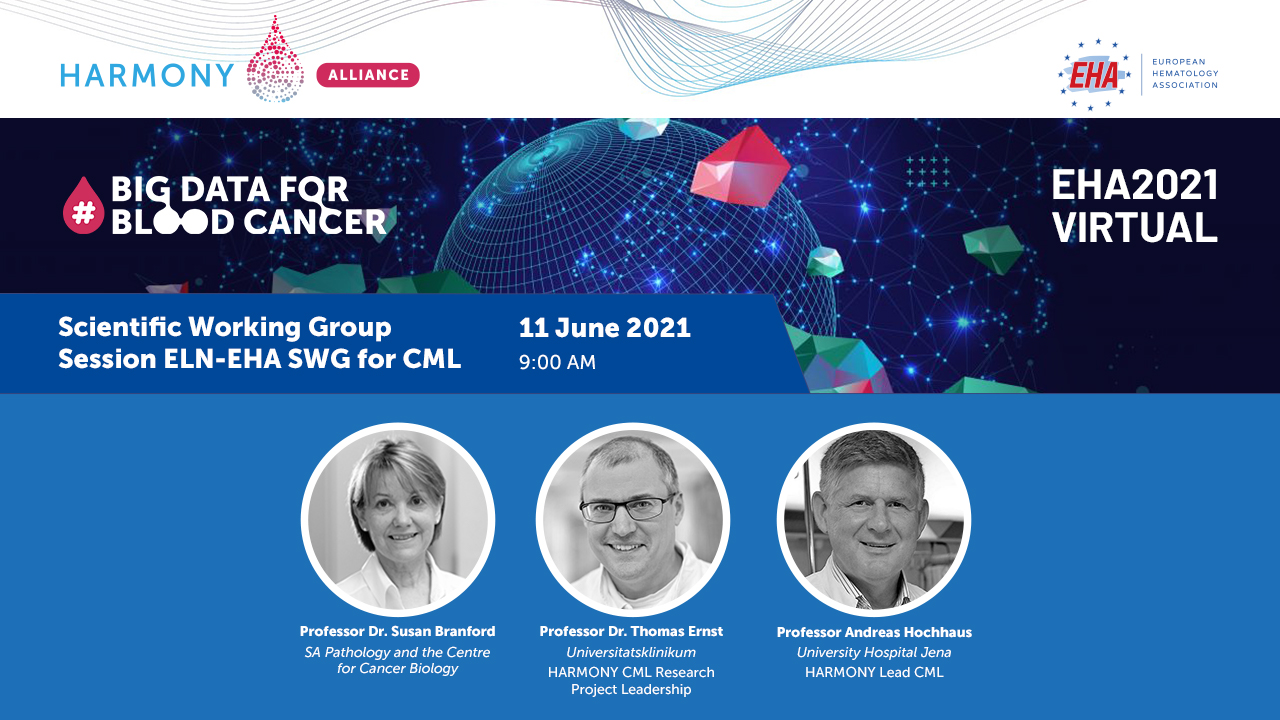Home> News> PRESS RELEASE: New HARMONY CML Research Project will study the role of genetic aberrations in the disease course of Chronic Myeloid Leukemia.
June 10, 2021 16:30 - x 00, 0 - 00:00
Press Release, The Hague, 10 June 2021
In a novel research project, HARMONY researchers will try to elucidate the hierarchy of genomic events that underlie the disease course in Chronic Myeloid Leukemia (CML). On behalf of the International CML Foundation Genomics Alliance, Professor Susan Branford discusses the project at EHA2021, the virtual Annual Congress of the European Hematology Association (EHA).
CML is principally characterized by a genomic aberration called the BCR-ABL1 gene fusion, resulting in uncontrolled proliferation of hematopoietic stem cells. The leukemic cells build up in the bone marrow, spill over into the blood, and may settle in other parts of the body. In most cases, CML is fairly slow-growing and can be successfully treated with tyrosine kinase inhibitors (TKI). In case of treatment failure, analyses usually focus on mutations in the BCR-ABL1 kinase domain, despite the fact that a multitude of other genetic events are now thought to play a role in TKI resistance and progression. To obtain insight in the role of these other molecular aberrations, genetic data from thousands of patients need to be studied. The HARMONY Big Data Platform offers excellent opportunities to do that.
Professor Susan Branford, International CML Foundation Genomics Alliance, HARMONY CML “A goal of the CML Genomics Alliance since its formation in 2018 is to pool mutational data through a shared database. This will enhance the statistical power in order to understand the impact of genomic variation on treatment response for patients with CML. The HARMONY Plus Big Data platform now provides the opportunity to move forward to answer multiple clinical questions.”
Professor Andreas Hochhaus, University Hospital Jena and HARMONY CML Leader, is also involved in the research project. “We know that several molecular aberrations may have an impact on outcome of CML patients, but there is no large collection of such patients. Therefore, it is important to put all the knowledge and efforts together which are currently ongoing, to reveal the importance of these genetic aberrations.”
The researchers will address multiple research questions, for instance ‘Are certain mutations associated with an increased risk in terms of TKI response and progression, and how could this knowledge influence our therapeutic decision making?’ The ultimate goal is to improve CML management and patient outcomes. The CML project illustrates how HARMONY is using Big Data to improve the treatment of blood cancer.

More information: Ellen de Waal, HARMONY Manager Communications and Dissemination, e.dewaal@ehaweb.org
Receive the latest news. Click here to subscribe!